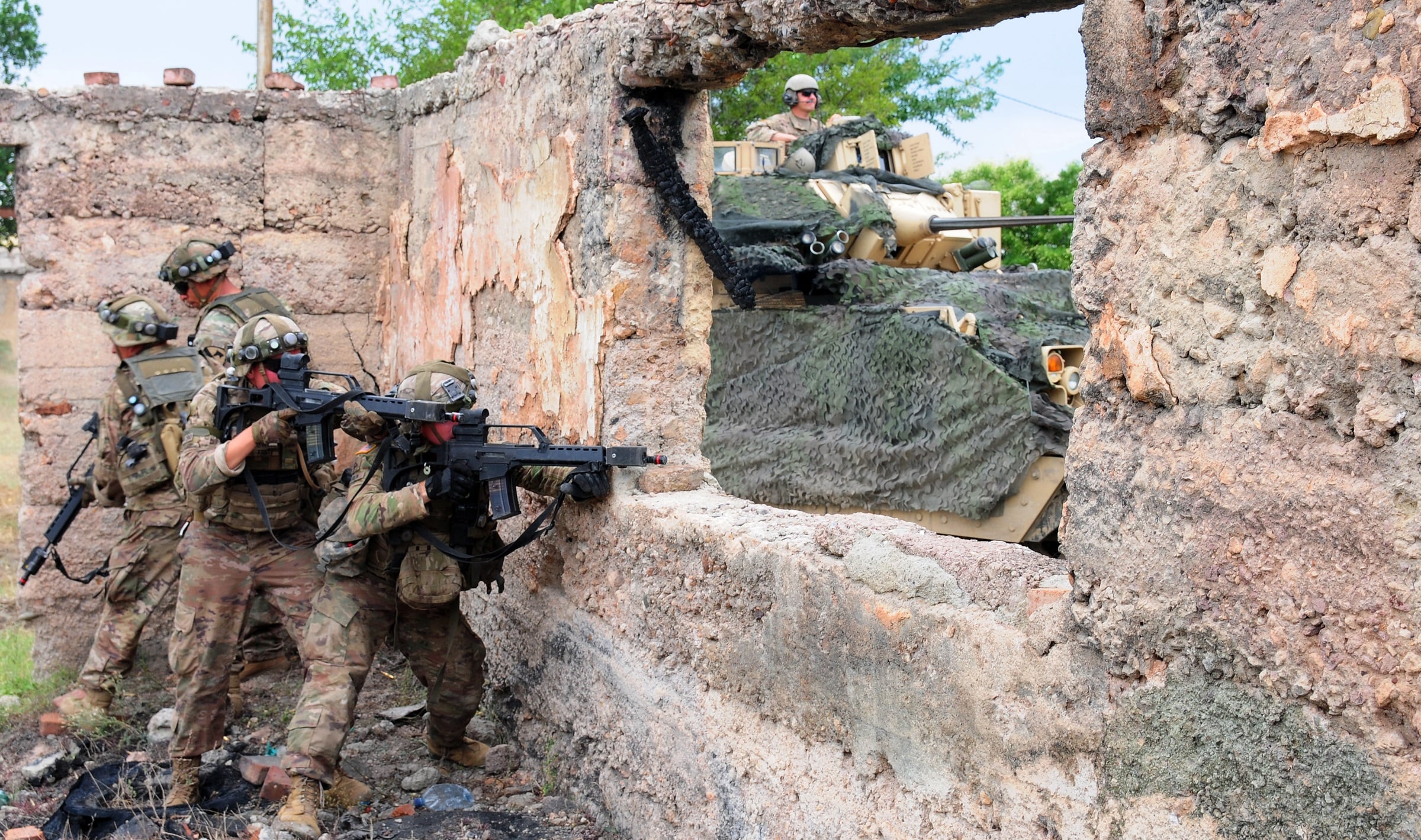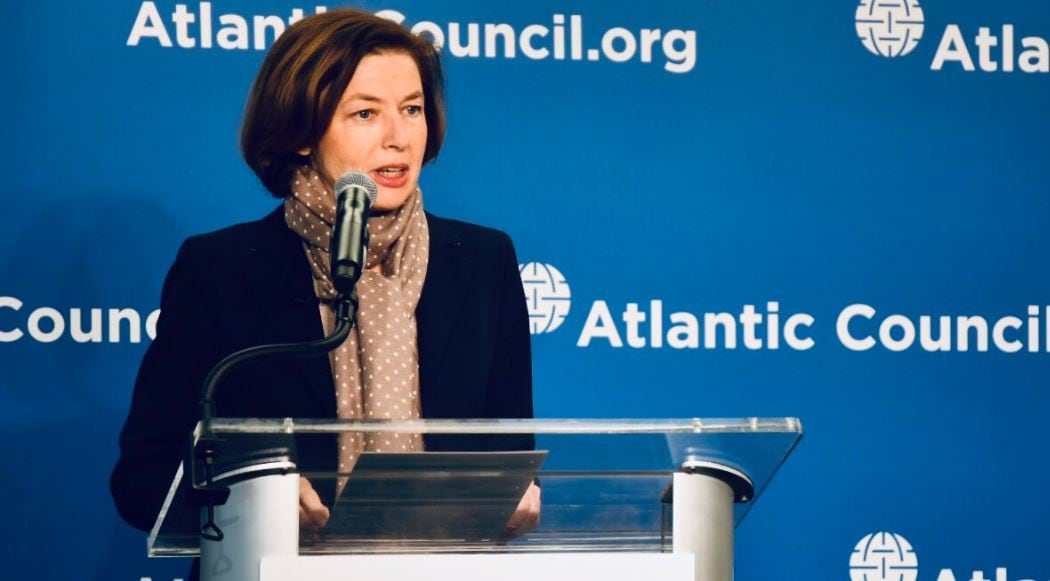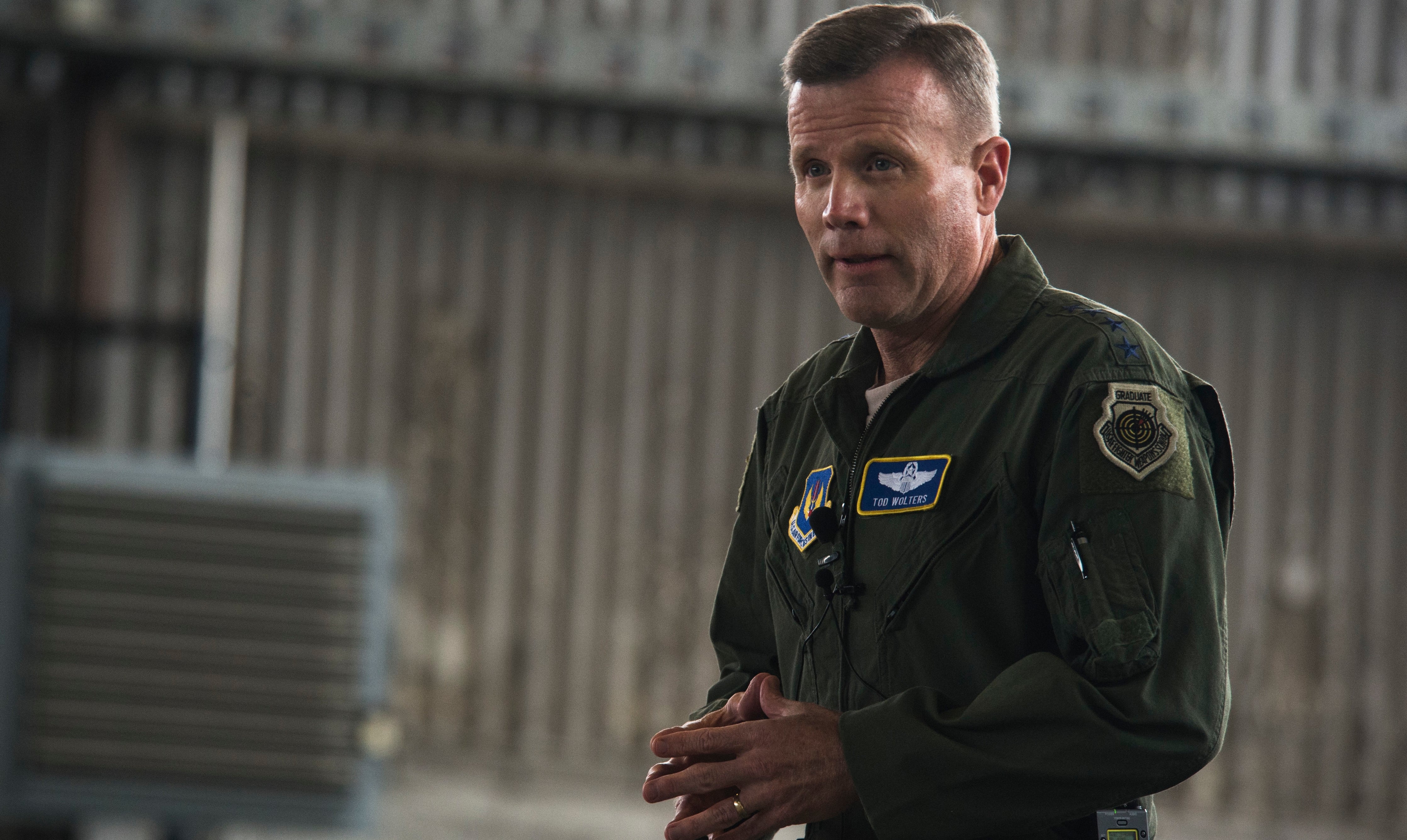French President Emmanuel Macron’s idea of building a “true, European army” should “never be seen as a move against the United States,” France’s top military leader said this week.
A European army would help the Pentagon better allocate troops, equipment and funding at a time when multiple theaters of operation pose a threat to the U.S. and its allies, French Armed Forces Minister Florence Parly said at the Atlantic Council Monday.
“Autonomy should be a variation on friendship and European autonomy should not become a cause for the U.S. to be less engaged,” Parly said. “Quite the contrary: The U.S. and Europe have more in common than anyone else. ... We fight the same wars.”
“We share the same values, we are faced with the same threats, from terror to the resurgence of 19th century-style power politics — China and Russia, and the like.”
Parly’s defense of the European army concept appears to be directed at President Donald Trump, who rebuked the idea in November.
“Emmanuel Macron suggests building its own army to protect Europe against the U.S., China and Russia. But it was Germany in World Wars [I and II],” Trump tweeted Nov. 13. “How did that work out for France? They were starting to learn German in Paris before the U.S. came along. Pay for NATO or not!”
RELATED

Macron brought up the idea of a European army during a visit to the former Western Front as his country marked the centennial anniversary of the World War I Armistice. During the visit, Macron said that Russia had shown it could be a threat to Europe and the continent must be able to “defend itself better alone" without relying on the U.S. military.
German Chancellor Angela Merkel backed the idea of a joint European intervention force for crisis missions over the summer.
British leaders remained wary, though, arguing that a European army risks creating a parallel structure that could compete with NATO priorities.
But the European army proposal isn’t meant to reverse the terms of the NATO alliance, according to Parly.
“We want America solidly steeped in NATO,” she said.

During her speech at the Atlantic Council, Parly argued that a European army would ease Washington’s burden in an era when China and Russia provide two fronts of defense spending that are hard to maintain simultaneously.
That’s to say nothing of the ongoing conflicts in the Middle East.
“We need to step up to help without waiting for the U.S. to always foot the bill,” Parly said.
France has long been a key ally for American forces, retired U.S. Marine Gen. James L. Jones, Jr., the executive chairman emeritus of the Atlantic Council, said at the discussion Monday.
RELATED

“In the past decade alone, our two countries have worked closely together to fight terrorism in the Sahel; to end ISIS domination of Syria and Iraq as members of the global coalition; to exchange operational military intelligence and to cooperate on cyber defense capabilities,” Jones said. “I can tell you from personal experience that the French armed forces are the best in Europe.”
France has also been active in operations outside Europe.
Beginning in 2013, France led a mission to prevent the overthrow of the Malian government by al-Qaida and ISIS-linked militants, while still benefiting from “fantastic U.S. support" in the form of intelligence, surveillance, refueling and transport assistance, Parly said.
“Beyond this case I have a broader message, a simple message: You can count on us,” Parly added. “We will be there not only for today’s wars but also for those of tomorrow. CBRN, space, cyber, hybrid, information wars. When Assad used chemical weapons France and the UK were there with the U.S. to deliver precision strikes on the chemical facilities. We will do it again, if necessary.”
Kyle Rempfer was an editor and reporter who has covered combat operations, criminal cases, foreign military assistance and training accidents. Before entering journalism, Kyle served in U.S. Air Force Special Tactics and deployed in 2014 to Paktika Province, Afghanistan, and Baghdad, Iraq.




